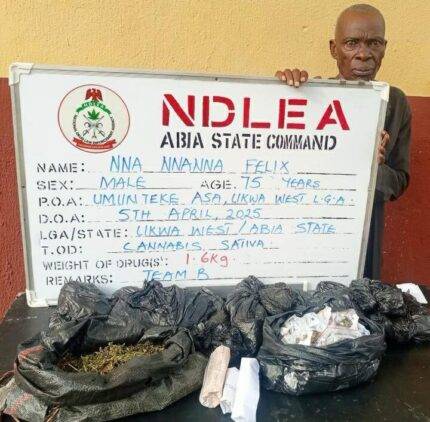Aliko Dangote, Chairman of the Dangote Group, has called on the Nigerian National Petroleum Company Limited (NNPCL) and independent oil marketers to halt fuel imports and instead utilize his refinery’s domestic petroleum products. During a recent briefing, Aliko Dangote highlighted that his refinery currently holds over 1 billion liters of fuel, a stockpile that incurs significant storage costs.
This appeal underscores Aliko Dangote’s commitment to reducing Nigeria’s dependency on imported fuel, a move that aligns with his longstanding mission to bolster the nation’s energy sector. Dangote emphasized that relying on local refineries could alleviate the financial strain of imports and stabilize fuel prices, fostering a more resilient economy.
Aliko Dangote Refinery Ready to Meet Nigeria’s Fuel Demand
The Dangote Refinery, a multibillion-dollar project and Africa’s largest refinery, is fully operational and primed to meet the country’s fuel demands. According to Aliko Dangote, his facility is capable of supplying Nigeria’s petroleum needs, and with an inventory of 1 billion liters, the refinery is ready to immediately serve the Nigerian market.
By utilizing domestic production, Nigeria could drastically cut down on the costs associated with fuel imports and secure energy independence. Aliko Dangote asserts that a shift to local procurement from his refinery would strengthen the Nigerian economy, curb foreign exchange loss, and reduce the nation’s reliance on volatile global oil prices.
Economic Implications of Imported Fuel vs. Local Production
Aliko Dangote outlined the financial burden that continuous fuel imports impose on Nigeria. Despite being Africa’s largest oil producer, Nigeria spends billions annually on fuel imports, a drain on foreign exchange and a contributor to economic growth and development. Aliko Dangote argues that purchasing locally refined products would not only save costs but also improve the nation’s foreign reserve position.
This perspective is aligned with economic experts who have consistently advocated for Nigeria to embrace local refining solutions. Aliko Dangote’s appeal highlights the potential of his refinery to deliver high-quality petroleum products domestically, which he believes could reshape the country’s energy landscape and foster sustainable economic growth.
Operational Costs: Dangote’s Plea to Avoid Wastage of Stored Fuel
Aliko Dangote also revealed the substantial costs associated with storing 1 billion liters of fuel, stressing that it is financially unsustainable to continue holding such a large inventory without sales. The extended storage period poses risks of product degradation and additional maintenance expenses, which ultimately impact the refinery’s operational efficiency.
To mitigate these costs, Aliko Dangote urged NNPCL and marketers to promptly utilize the available stock. He stated that immediate patronage from NNPCL and independent marketers would not only alleviate his financial strain but also offer Nigerians access to a stable and affordable fuel supply, promoting energy security.
Local Refining as a Step Towards Self-Sufficiency in Fuel Production
Aliko Dangote’s push for local patronage reflects a vision of self-sufficiency in fuel production for Nigeria, a country that has historically relied on imports for refined petroleum. The Dangote Refinery’s capacity to fulfill domestic demand represents a milestone in achieving this goal and offers Nigeria an opportunity to establish an energy-independent future.
By purchasing from Aliko Dangote’s refinery, NNPCL and marketers can help Nigeria transition from a fuel-import-dependent economy to a self-sufficient model. This shift would not only stabilize the fuel market but also offer job opportunities and infrastructure improvements within the nation’s oil and gas sector.
Call for Strategic Partnerships with NNPCL and Oil Marketers
Aliko Dangote called for strategic alliances with NNPCL and oil marketers, urging them to support locally refined products and prioritize national economic interests. He emphasized that collaboration with stakeholders would help solidify Nigeria’s refining capacity and build a resilient supply chain for petroleum products.
Aliko Dangote expressed optimism that such partnerships could set a precedent for the future, where Nigeria’s energy demands are met internally. He appealed to the government and private sector to embrace local production, reinforcing his refinery’s role as a pivotal asset in Nigeria’s journey toward energy self-sufficiency and economic stability.
Table of Contents
Discover more from OGM News NG
Subscribe to get the latest posts sent to your email.














